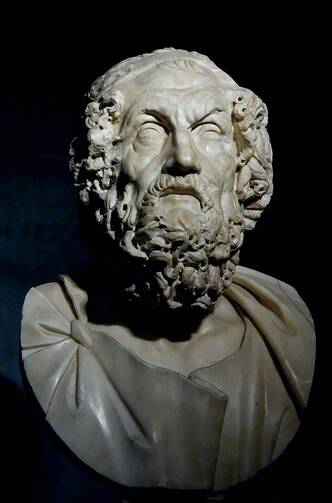Shakespeare and Homer, Latin and Greek? Computer Science? Introduction to Coding?
It's that time of year, when faculty start to think about changes for next year. Yes, even in November it begins.
When it comes to what students should read and what they should know, and what courses they should take as part of a required curriculum, the possibilities daunt the mind. Many schools follow a very similar plan. Most high schools, for example, generally require a few years (up to four) of English, math, social science, and language. There are limited spaces for electives. While Catholic high schools have more flexibility and generally have four-year theology requirements, they also offer a course of studies substantially similar to what public schools provide. And this isn't because these Catholic schools don't wish to be authentically Catholic. To maintain accreditation, and to remain attractive to both students and prospective colleges, Catholic schools have to make some efforts to remain in the mainstream.
But various factors continue to challenge the standard curriculum. Do students really need to take four years of social studies or three to four years of a language? It's a tough call. One of my colleagues says, "We have to vote something off the island." What gets voted off? What can never be voted off? An older generation extols the glory of Latin and Greek. But are Latin and Greek more important, or as important, as learning to construct software? In an ideal situation perhaps both skills are nurtured at the same time, but what if that isn't possible? Students have to choose. They have to continue to—in Ignatian terms—discern. Perhaps an insight lies there: it's not about finding the perfect solution, but finding what fits each student ad majorem dei gloriam.
We cannot build our schools ignorant of the practical needs of the world and of our students; nor can we diminish the value of an education that invites students to think deeply about God, the nature of the human being, and the meaning of life. I want my students to think about the Incarnation, but I also want them to develop the skills to manage their family's finances.
So my question, then, is what needs to stay and what needs to go, particularly at a Catholic high school?








